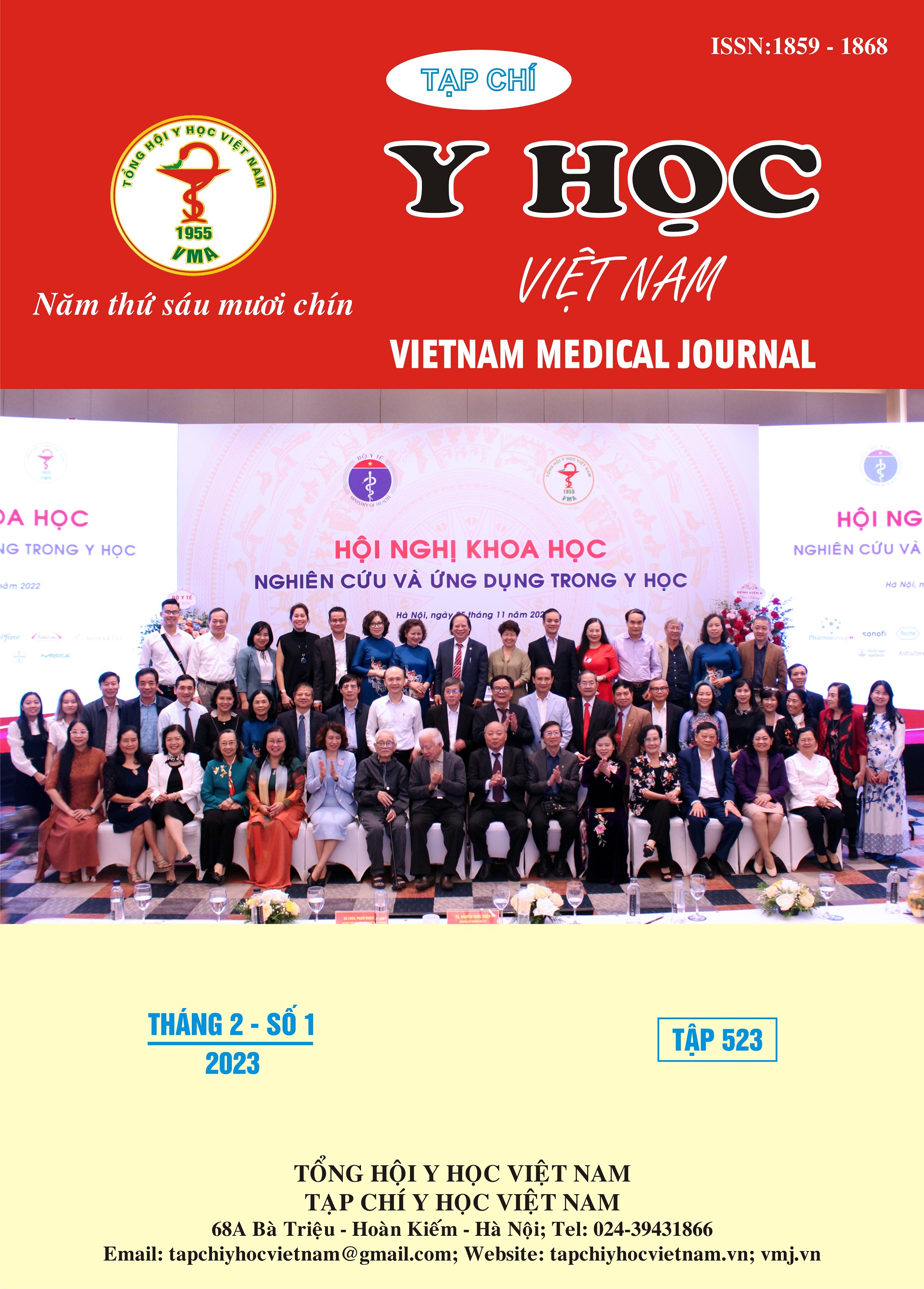SURVEYING THE DIFFERENCE ON SOME PSYCHOLOGICAL CHARACTERISTICS OF MILITARY FLIGHT CADETS, PILOTS, AND FLIGHT CREW MEMBERS
Main Article Content
Abstract
Objective: To investigate the differences in some psychological characteristics of military flight cadets, pilots and crew members using the Vienna Test System (VTS) at Air Defense Air Force Medical Institute. Subjects and methods: A cross-sectional descriptive study combined with analysis of psychological parameters by VTS system on 300 people including flight cadets, pilots and crew members studying and working at flying units under the Ministry of Defense from 2020 to 2022. Results: RT test, the number of correct responses and reaction time was best for the pilot group, the worst was for the group of flight cadets. The fastest movement time was the group of trainees, the slowest was the group of crew members (CM). The highest number of corrects and delays when taking the SIGNAL test was in the pilot group, the lowest was in the CM group. The mean detection time of the CM group was higher than that of the pilot and trainee group. Checking SMK, the right angle deviation, horizontal angle deviation and vertical angle deviation were lowest for the pilot group, the highest was for the CM group. The ideal position time was longest in the pilot group, the least in the CM group. Conclusion: The best response time test was the pilot group, the worst was the flight trainee group. The ability to cognition and attention SIGNAL was highest of the pilot group, the lowest was the CM group. The best ability to coordinate movement SMK was the pilot group, the worst was the CM group.
Article Details
Keywords
Vienna Test System (VTS), aviation psychology.
References
2. G. Schuhfried (2013). Vienna test system: Psychological assessment. Moedling: Schuhfried. https://www.schuhfried.com/vienna-test-system/applications/sport/.
3. Nathanael Chong Hao Ong (2015). The use of the Vienna Test System in sport psychology research: A review. International review of sport and exercise psychology: 1-21.
4. Gianclaudio Casutt, Nathan Theill, Mike Martin, et al. (2014). The drive-wise project: driving simulator training increases real driving performance in healthy older drivers. Frontiers in Aging Neuroscience, 6(85): 1-14.
5. Inmaculada Garrido-Palomino, Simon Fryer, Dave Giles, et al. (2020). Attentional Differences as a Function of Rock Climbing Performance. Frontiers in Psychology, 11(1550): 1-8.
6. Marta Szczypińska, Mirosławmikicin (2019). Does attention training induce any changes in the level of the selected cognitive processes in handball players. Journal of Physical Education and Sport, 19(4): 1445 – 1452.
7. Dilworth M (2008). The Importance Of Reaction Time In Sports Performance. http://sportsfitnesshut.blogspot.com/2008/01/importance-of-reaction-time-in-sports.
8. Brigitta Kiss, László Balogh, Ákos Münnich, et al. (2020). A sport-psychological diagnostic examination of young EHF handball referees with a focus on mental skills. Journal of Physical Education and Sport, 20(4): 1984 - 1995.


